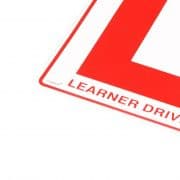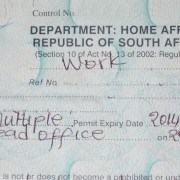|
Getting your Trinity Audio player ready...
|
Towards the end of last year the Ethics Institute of South Africa (EthicsSA) released its second South African Citizen’s Bribery Survey, following on the first edition released in 2015. The survey aims, says EthicsSA, to help develop a “better understanding of the bribery challenges that South Africans face on a daily basis, their beliefs about bribery, and the socio-economic factors that influence bribery”.
For the 2016 edition, the EthicsSA team focused not only on those who were paying bribes, but also on those who were not – with a view to highlighting people’s positive motivations and as a result, “changing the narrative about bribery in South Africa”.
The survey was sponsored by Massmart-Walmart and was conducted in stores in the Free State, Gauteng, Limpopo, KwaZulu-Natal and the Western Cape, among 4 553 respondents.
Download the 2016 South African Citizen’s Bribery Survey.
Average bribe amount up a notch
It found that the average bribe amount paid by respondents was a staggering R2 200, an increase of R195 over 2015. The most frequently mentioned bribe amount, however, was between R50 and R100, while 56% of bribes were below R1 000 and 91% below R5 000. In 2015 there were significantly more bribes in the R5 001 – R10 000 category, said EthicsSA.
Just under half – 49% – of respondents said they had never been asked for a bribe. Of those who had been asked, 60% of these claimed that they had at some point declined to pay, while 40% said they always paid when asked. This equates to around 27% of all respondents who refused to pay a bribe.
EthicsSA is concerned about the fact that the majority of bribes were paid to get out of the consequences of traffic offences – and there was an increase of 2% over last year. The third most common reason, after getting a job, was to get a driver’s licence. Adding these two figures means that traffic-related bribes accounted for 51% of all bribes.
This seems to show that people who drive lawlessly, or are not qualified to drive, are confident that a little cash transfer will allow them to continue their dangerous ways. “If these relatively contained areas of bribery could be reduced, it would make a tremendous impact on people’s experience of bribery, and more importantly, on South Africa’s high number of road deaths,” said EthicsSA.
Paying to get out of trouble
Respondents cited various motivational factors for paying a bribe:
- Avoiding a traffic offence 36%
- Getting a job 18%
- Getting a driver’s licence 15%
- Discounts/free goods from businesses 7%
- Tenders 4%
Of those who did pay the bribe, 43% felt they had no choice, 36% said it was convenient, and 8% felt that bribery was not a big deal. Whatever the reason, said EthicsSA, it is a worrying trend in a country with high levels of road deaths and crime, as it seems that accountability mechanisms are being corrupted.
Other factors involved social grants, Home Affairs, and land or housing. These lesser percentages of public sector bureaucratic corruption added up to a significant 15% of all bribes mentioned.
Half of the 27% who refused to pay the bribe said it was against their moral or religious principles, while 11% were afraid of the consequences. In addition, 13% said they could not afford it – it can be assumed that the majority of this this group would have paid the bribe if they had the money, said EthicsSA.
Bribes for both jobs and tenders occurred at the same percentage in both the public (55%) and private (45%) sectors. “Although the public sector was mentioned the most, the private sector was certainly not far behind,” said EthicsSA. In the public sector the top three departments mentioned were police and metro police, Home Affairs, and Health. In the private sector the top three areas mentioned were construction, mining and security.
Only around 35% of respondents indicated that it is not possible to get through everyday life in South Africa without paying a bribe. In 2015 22% indicated that it is possible to get through everyday life without paying a bribe, while in 2016 that figure more than doubled to 49%. This marked increase could be influenced by the positioning of the question in the survey, said EthicsSA, as it was placed after the newly added question which required participants to reflect on saying no to bribes.
The survey also highlighted that people from low income groups (earnings of R100 000 per annum) were more vulnerable to bribery, especially for jobs and drivers’ licences, as compared to higher-earning individuals (R500 000 per annum). The latter group, however, experienced more tender-related bribery.
“The results from the survey are at the very least useful in showing that it is in fact the minority of people who pay bribes, and that many South Africans have strong moral views against bribery,” EthicsSA concluded.








